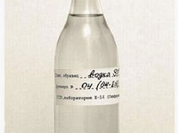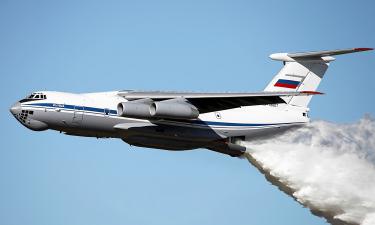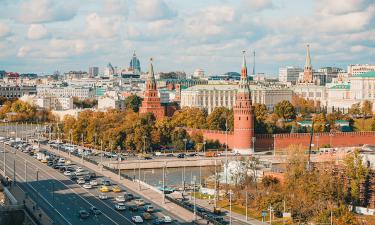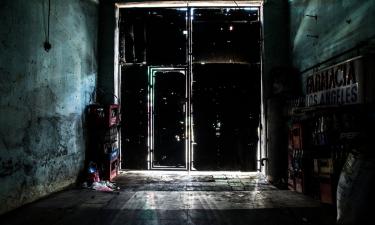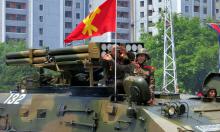Negotiations in Najaf
Iraqi government officials and their American military backers opened talks yesterday with aides of the Shia cleric Moqtada al-Sadr in an attempt to end three weeks of fighting in the slums of northern Baghdad. Sadr City rose up following the collapse of a truce between the cleric's Mahdi army and American forces in the holy city of Najaf. Despite another ceasefire negotiated in Najaf and nearby Kufa last week fighting continued in Sadr City over the weekend and at least 10 people were killed. It raised the number of dead to more than 200 in Baghdad this month. The slums, where two million of the poorest members of Iraq's majority Shia community live, have long been Sadr's principal bastion of support. Seeking to allay fears that the Mahdi army could switch its main military operations to the capital, Sadr aides said they were eager to conclude a deal with the government. The tribal negotiating team brokering the talks said deals had been reached on rebuilding battle-damaged areas and on the withdrawal of US forces but that the Mahdi army continued to refuse to hand over weapons, informs Telegraph. According to ABCNEWS, the U.S. military and Iraqi Shiite and tribal leaders held talks Sunday aimed a reducing tensions in the Baghdad's Sadr City slum, where 10 people died in fighting a day earlier between Shiite militiamen and U.S. troops. Iraqi officials said all sides had agreed a one-day truce, but the U.S. military denied that, saying no agreement had been reached. Meanwhile, violence continued in other areas of the country Sunday. Clashes between U.S. forces and insurgents in the northern city of Mosul left two dead and 34 injured, according to the U.S. military. Saboteurs in southern Iraq blew up a cluster of oil export pipelines, further reducing exports vital to Iraqi reconstruction. The new oil attack at least the third significant sabotage of oil pipelines in four days shrunk exports from southern Iraq to 500,000 barrels a day, less than a third of the normal average, an official with the South Oil company said. Sadr City, a sprawling Shiite district of eastern Baghdad, has been the scene of repeated clashes between militiamen loyal to radical cleric Muqtada al-Sadr and U.S. forces for months, but the violence intensified in recent weeks as fighting in Najaf that erupted Aug. 5 spread to Shiite communities across the country. Despite the apparent resolution of the Najaf crisis on Friday, the fighting continued in Baghdad, as al-Sadr's Mahdi Army militiamen, armed with rifles and mortars, fought with U.S. forces. Interim Prime Minister Ayad Allawi blamed the continuing violence on renegade militiamen "who are disobeying Muqtada al-Sadr's orders." At least 14 people were killed and 135 wounded in clashes between insurgents and US-led coalition forces in Sadr City and Mosul overnight and on Sunday. Shia militants and US forces battled throughout Sadr City, and a mortar barrage slammed into a busy neighborhood in the capital. Saad Al Amili, a Health Ministry official, said 10 people were killed and 126 wounded in the skirmishes over the last 24 hours. Militants fired eight mortars which hit an electricity substation, cutting power to five or six blocks of Sadr City, the US military said. Insurgents also fired a round of mortars into a crowded eastern Baghdad neighborhood, killing two boys washing cars in a street, said Interior Ministry spokesman. Sadr aides hold talks with govt: On Sunday, the Iraqi government and the office of Shia leader Moqtada Al Sadr held talks to try to end fighting in Sadr City. The talks were due to continue on Monday, police and Sadr aides told AFP. The US military said the talks concluded with no agreement, either in the form of a ceasefire or for US troops to withdraw, publishes Daily Times.
Read earlier news stories by PRAVDA.Ru
Subscribe to Pravda.Ru Telegram channel, Facebook, RSS!
